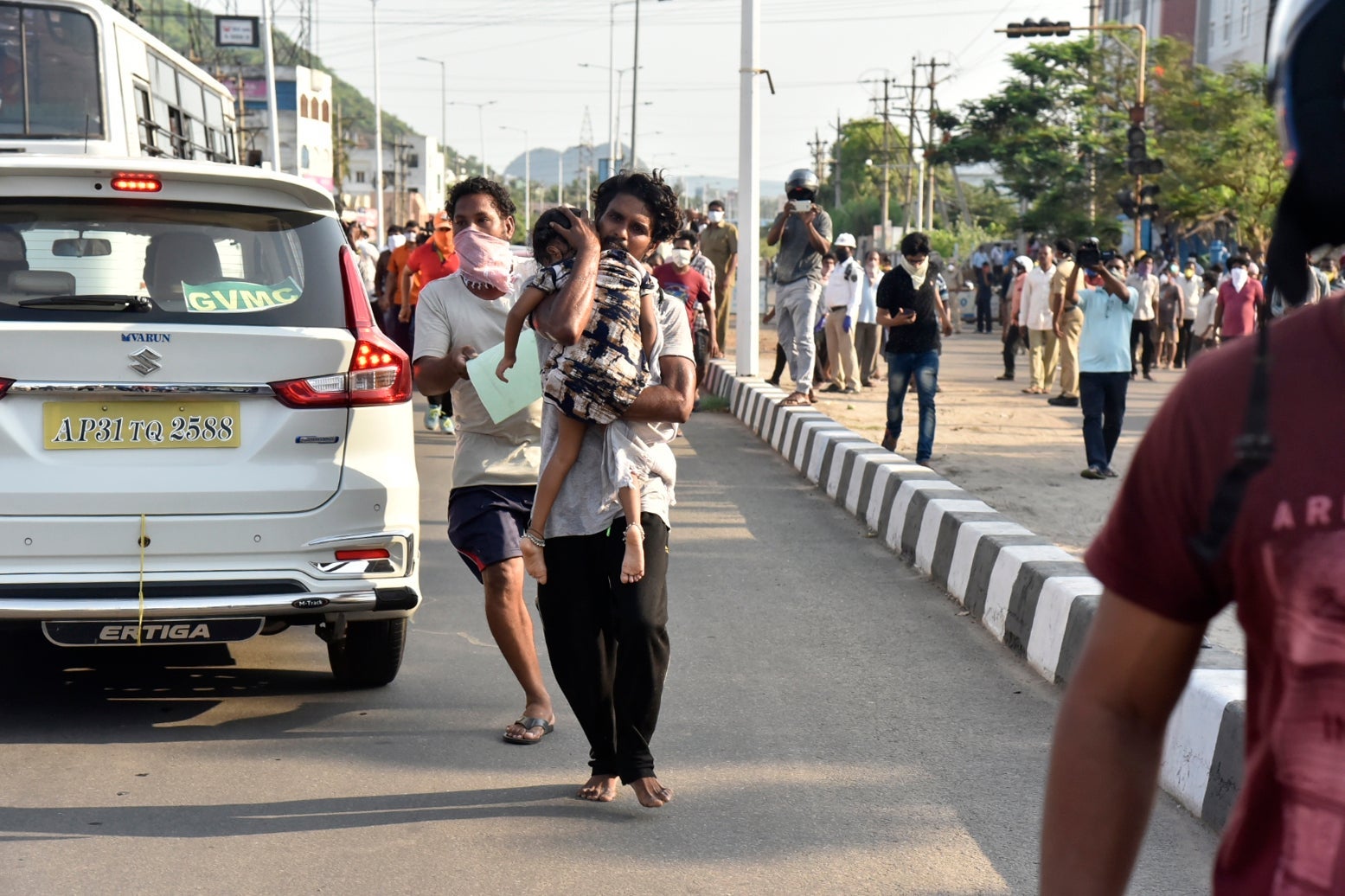India gas leak: 13 dead and hundreds in hospital as toxic cloud spreads across southern city of Vishakhapatnam
Those affected by the gas have described suffering burning eyes and breathing difficulties

Your support helps us to tell the story
From reproductive rights to climate change to Big Tech, The Independent is on the ground when the story is developing. Whether it's investigating the financials of Elon Musk's pro-Trump PAC or producing our latest documentary, 'The A Word', which shines a light on the American women fighting for reproductive rights, we know how important it is to parse out the facts from the messaging.
At such a critical moment in US history, we need reporters on the ground. Your donation allows us to keep sending journalists to speak to both sides of the story.
The Independent is trusted by Americans across the entire political spectrum. And unlike many other quality news outlets, we choose not to lock Americans out of our reporting and analysis with paywalls. We believe quality journalism should be available to everyone, paid for by those who can afford it.
Your support makes all the difference.At least 13 people have died and nearly 1,000 have fallen sick after a cloud of toxic gas leaked out of an Indian industrial plant in the small hours of Thursday morning.
Distressing images on social media showed people who had collapsed as they tried to flee the gas in the city of Vishakhapatnam, in southern Andhra Pradesh state.
The leak took place at a plant just outside of the city operated by LG Polymers, owned by South Korea’s largest petrochemicals firm LG Chem. A company spokesperson said the plant was gearing up to reopen for the first time since 24 March, when India went into a nationwide lockdown to stem the spread of coronavirus.
Police said up to 400 people had been taken to hospital and around 1,500 evacuated, mostly from villages immediately adjacent to the plant. Those affected by the gas have described suffering burning eyes and breathing difficulties.
The gas leaked after a fire broke out on the premises, which was discovered by a night shift maintenance worker and has since been extinguished. Other workers are believed to have been inside the plant when the leak began, but it is unclear what happened to them at this stage.
LG said the source of the leak, which began at 3am local time, had been contained – but the city’s municipal corporation said anyone living within a 3km radius of the plant was vulnerable.
An eyewitness who was not named told a local TV station there was a total panic as a mist-like gas enveloped the area. “People felt breathless in their homes and tried to run away. Darkness added to the confusion.”
Of those who were killed, one died after falling into a well trying to flee the gas, while another jumped from a second-floor window in a bid to escape. The youngest dead was reported to be an eight-year-old girl.
People are being told to cover their faces and evacuate the area. Srijana Gummala, the local municipal commissioner, said water is being sprayed in the area to minimise the impact of the gas. “Through public address system, the people are being asked to use wet masks,” he said.
Local administrator Vinay Chand said the substance that leaked was believed to be the synthetic chemical styrene, a gas that is usually kept refrigerated.
“We are trying to understand the long-term impact of the chemical on those who have inhaled it during the leak,” Rajendra Reddy, a senior official in the Andhra Pradesh Pollution Control Board, told the BBC’s local Telugu language service.
Yashwanth Saikumar Ambati, 23, who lives about 300 metres from the plant, said he woke up around 4.30am because of a strong smell.
“I went back to sleep and I woke up around 6 because the smell got stronger. My eyes were itchy, and I was feeling drowsy, light-headed and slightly breathless,” he told the Reuters news agency.
Others in his neighbourhood also complained of eye irritation, while some said they had a stomach ache. He then called a friend living a few kilometres away and quickly moved there.
One local revenue official said she was called at 4am by a police officer who sounded alarmed, and told her to come to a spot near the facility “immediately”.
When B V Rani arrived at the scene she saw that people had collapsed unconscious in the village adjoining the 60-acre site of the plant.
“I personally helped more than 15 people get to an ambulance who had tried to run away from the village but dropped down within a few metres,” she said.
News of gas leaks brings back awful memories for many in India, where the world’s worst industrial accident – the Bhopal gas tragedy – took place in December 1984.
That incident, a leak at a pesticide plant in the central city that also occurred in the middle of the night, killed at least 3,780 people and is still reported to have chemical impacts on children born to this day.
Join our commenting forum
Join thought-provoking conversations, follow other Independent readers and see their replies
Comments